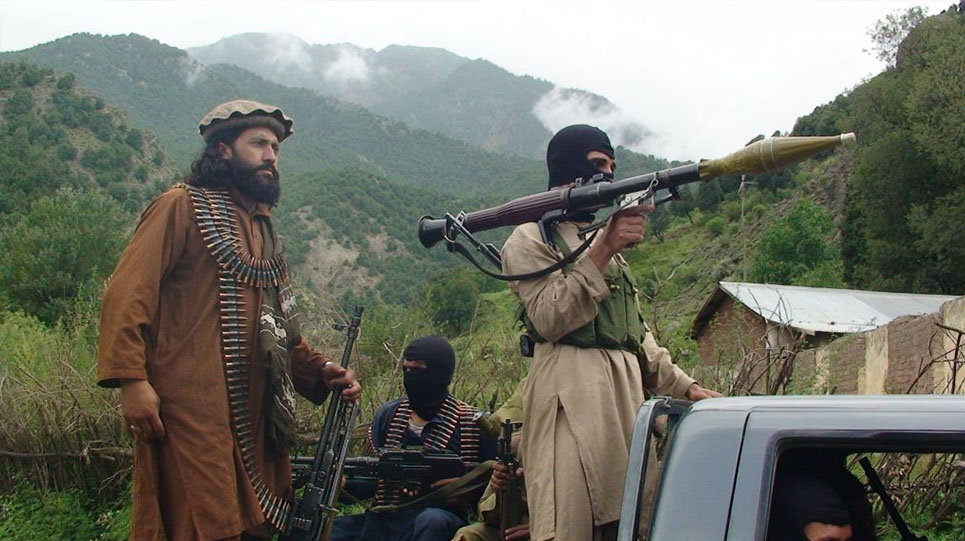
The Pakistani Taliban (Photo: AP/Ishtiaq Mahsud)
Pakistan’s Special Representative on Afghanistan Ambassador Asif Durrani has said that Pakistan’s peace talks with the banned Tehreek-e-Taliban Pakistan (TTP) failed in the past because the militant group was neither ready to surrender nor swear allegiance to the constitution of Pakistan. The third primary reason for the deadlock in talks was that the group didn’t want to face the law for the heinous crimes it committed, including the attack on the Army Public School (APS) in Peshawar, he added.
The special envoy was speaking at a consultation on “Afghan peace and reconciliation: Pakistan’s interests and policy options”, organized by the Pak Institute for Peace Studies (PIPS). The main themes of the talk included ‘Pakistan’s Afghan policy puzzle: Challenges and opportunities for the new government’ and ‘The counterterrorism and counter-extremism challenges for the new federal and provincial governments.’
Lawmakers of national and provincial assemblies, politicians, diplomats, academics, journalists, policy analysts, and experts on Afghan affairs participated in the event.
Ambassador Durrani said that Pakistan, during talks, had told the interim government in Kabul that the latter needed to make TTP surrender and disarm the group and detain its leadership. He clarified that “TTP is the red line for Pakistan”.
He went on to say that TTP had 5,000 to 6,000 militants in its cadres taking shelter in Afghanistan, adding, “If we include their families, then the number goes up to 70,000.” He said that it was apparent the interim Afghan government could not afford the per-day expenditure of such a large number of people, which meant that someone else was paying for their upkeep. He said that Pakistan had evidence that “TTP is getting money from India through Afghan proxies”.
Talking about the Pak-Afghan issue, the envoy said that Pakistan should implement the one-document regime on all border crossings with Afghanistan.
Former federal minister of state for parliamentary affairs and Pakistan Tehreek-e-Insaf (PTI) leader Ali Muhammad Khan said that Afghanistan should be given an opportunity to make its own decisions. He added that Pakistan could help its neighbor in peacebuilding. “We understand that opening of borders and trade with Afghanistan was in the interest of Pakistan,” he said. He advised that the huge potential of Khyber Pakhtunkhwa could be used in promoting trade with the neighbouring country.
Former chief minister Balochistan and National Party leader Dr. Abdul Malik Baloch talked about parliamentary supremacy and said that the solution of all economic, polit-ical and foreign policy problems of Pakistan “only lies with the parliament.” He also called for bringing “real public representation” in Balochistan to solve problems of the province. Political analyst and expert on Afghan affairs ex-Senator Afrasiab Khattak viewed that the root cause of many problems of Pakistan, including its ailing economy and extremism, was its flawed policy for Afghanistan.



